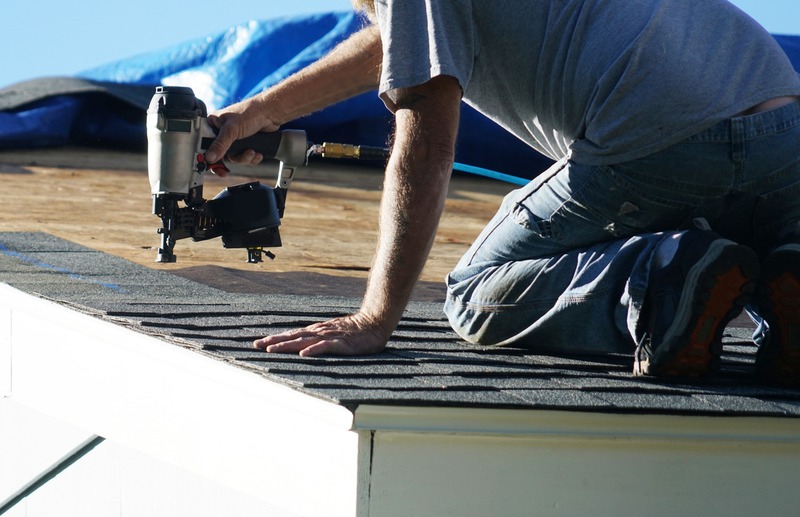When it comes to a roofing project, it’s safe to say that nobody wants to deal with shoddy craftsmanship. Ensuring that your roofing is done right the first time not only gives you peace of mind but can also save you a lot of money and trouble in the long run. In this article, we’ll explore several strategies to ensure the quality of workmanship in your next roofing project.
Understanding the Scope and Purpose of Your Roofing Project
Before diving into the nitty-gritty of your roofing project, it’s crucial to understand what you’re trying to achieve. Are you repairing a leaky roof, replacing an old one, or installing a brand-new roof on a newly constructed house? Knowing the specifics of your project will help you effectively communicate with contractors and gauge if the job is being done correctly.
Determine Your Roofing Needs
-
Evaluate the current state of your roof.
-
Identify whether you need repairs, replacement, or a new installation.
-
Consider the type of roofing material that best suits your needs.
Choosing the Right Roofing Material
The choice of roofing material can significantly affect the quality of your project. Different materials have varying durability, aesthetic appeal, and pricing. Ensure you pick a material that aligns with your priorities and the climate in your area.
Common Roofing Materials to Consider
-
Asphalt Shingles: Affordable and popular for residential homes.
-
Metal Roofing: Durable and long-lasting but may require a bigger budget.
-
Slate Tiles: Offers an aesthetic appeal but is fragile and heavy.
-
Cedar Shake: Provides a classic look and good insulation but requires maintenance.
Selecting the Best Contractor
Perhaps the most critical factor in ensuring quality workmanship is selecting the right contractor. A skilled and reliable contractor can make all the difference in the world when it comes to the outcome of your roofing project. Doing your due diligence in this area is imperative.
What to Look for in a Roofing Contractor
-
License and Insurance: Verify that the contractor is licensed and insured.
-
Experience: Check how long the contractor has been in business.
-
Reputation: Read reviews and ask for referrals.
-
Quotes: Get at least three different quotes to compare prices and services.
Documenting Everything in a Contract
Once you’ve chosen a contractor, it’s important to have everything documented in a contract. This legal document will serve as your protection and reference should any issues arise during or after the completion of the project.
Key Elements of a Roofing Contract
-
Scope of work with a detailed description of services.
-
Payment schedule and terms.
-
Estimated project timeline.
-
Details on warranties and guarantees.
Regular Communication with Your Contractor
Consistent and open communication with your roofing contractor is crucial. Keeping the lines of communication open ensures that you are kept in the loop about the progress and any potential issues that may come up. This can be a simple phone call, a site visit, or even email updates.
Monitoring the Progress of the Project
While trusting your contractor is important, it’s still wise to occasionally monitor the progress of the work being done. This doesn’t mean micromanaging but rather regularly checking that the project is progressing as planned and that the workmanship meets your expectations.
How to Monitor Effectively
-
Visit the site regularly and check the quality of materials used.
-
Talk to site managers or the foreman about the progress.
-
Ensure safety protocols are being followed.
Understanding the Importance of a Final Inspection
A final inspection is essential to ensure the work meets the agreed-upon standards and that no issues have been overlooked. Doing this before making the final payment ensures leverage to have any necessary corrections made without additional costs to you.
What to Check During the Final Inspection
-
Ensure all materials used were as per the contract.
-
Check for minor defects or unfinished areas.
-
Review the cleanup to ensure debris has been properly disposed of.
-
Go over warranty and assurance documents.
Choosing a top Ancaster roofing company can make a significant difference in the quality and durability of your roof, ensuring that these elements are meticulously managed and implemented.
Ensuring Proper Waste Disposal
Once your roofing project is complete, proper clean-up and waste disposal are critical. Debris from the roof, like old shingles and nails, can pose safety hazards if not disposed of correctly. Make sure that this is part of the contractor’s job.
Steps for Effective Waste Disposal
-
Discuss cleanup details in your initial contract.
-
Ensure waste is carted away and not just left at the curb.
-
Check for any recycling options for old roofing materials.
Engaging in professional residential roofing in Hamilton often puts a spotlight on rigorous waste management protocols. Such engagement often ensures that your immediate environment does not suffer from pollution or waste concerns.
Maintenance and Upkeep Post-Project
After ensuring your roofing project is done with quality and care, follow-up maintenance will prolong its lifespan. Regular inspections and minor repairs can save you from costly future undertakings.
Maintenance Tips
-
Inspect your roof bi-annually and after severe weather.
-
Clear gutters and downspouts to prevent water damage.
-
Trim trees around the house to avoid debris accumulation.
Experts often advise engaging a trusted roofing contractor for regular inspections. This part is crucial, especially if you’re not comfortable climbing roofs and scanning for issues on your own.
Final Thoughts
Ensuring quality workmanship in your roofing project involves multiple steps, from choosing the right materials and contractor to maintaining open communication and regular inspections. By following these guidelines, you can make sure your roofing project proceeds smoothly, resulting in a roof that not only stands the test of time but also adds value to your home. Take time to research and plan—it will pay off in the future with fewer roof-related headaches.





